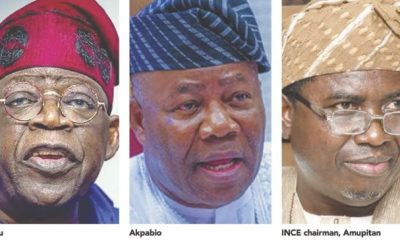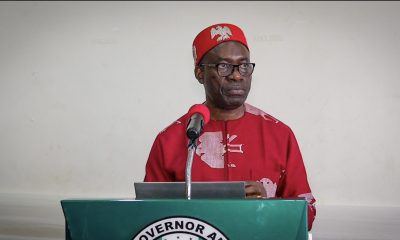The Lagos Chamber of Commerce and Industry (LCCI) has issued a cautionary statement urging Nigerian businesses to prepare for heightened interest rate challenges in 2025 as the Central Bank of Nigeria’s (CBN) monetary policies struggle to contain soaring inflation.
Reacting to the latest inflation data released by the National Bureau of Statistics (NBS), LCCI Director-General Dr. Chinyere Almona expressed grave concerns over the persistent rise in inflation, which hit a 26-year high of 34.60% in November 2024.
She warned that this inflationary pressure is exacerbating an already strained business environment.
Dr. Almona noted that elevated inflation is constraining business operations across the country by reducing consumer spending and increasing operational costs.
“The high inflation rate has far-reaching implications. One of its primary effects is reduced consumer spending, as high food and core inflation erode disposable income. Businesses, in turn, face increased costs and shrinking profit margins,” she said.
The LCCI DG highlighted that the combination of rising inflation, the failure of CBN’s efforts to control the money supply, and the festive season’s traditionally high spending could lead to even higher interest rates in the near future.
The NBS data showed that Nigeria’s headline inflation rose to 34.60% in November 2024, up from 33.88% in October, driven by surging costs of goods and services.
READ ALSO: LCCI projects 1m visitors, 300 Chinese businesses at 2024 LITF
Food inflation reached 39.93%, a sharp year-on-year increase from 32.84% in November 2023, largely due to rising prices of staples such as yam, potatoes, maize, rice, palm oil, and vegetable oil.
Core inflation, which excludes volatile items like agricultural produce and energy, rose to 28.75%, up from 22.38% in November 2023, reflecting higher costs in non-agricultural sectors.
Dr. Almona urged the Federal Government to sustain ongoing reforms, stating that while the impact of monetary policies on inflation has been weak, improved implementation of structural reforms could boost production and restore economic stability.
“We anticipate better performance from reform measures in tackling inflation, interest rates, and exchange rates,” she noted.
To further stabilize the economy, the LCCI advocated for measures to drive oil production, attract foreign investments, and strengthen naira defenses. Dr. Almona also called for a stronger regulatory framework to support new oil field investments and enhance investor confidence.
The DG emphasized the importance of sustained funding for security to combat terrorism and kidnapping, particularly in agricultural areas, as insecurity contributes to rising food prices. She also recommended deploying intelligence and surveillance technologies alongside multi-level policing to enhance safety across the country.
As Nigeria navigates these economic challenges, the LCCI stressed that a coordinated effort among stakeholders is crucial to reversing inflation trends, boosting production, and achieving a stable business environment in 2025.

 Comments and Issues1 week ago
Comments and Issues1 week ago
 Comments and Issues1 week ago
Comments and Issues1 week ago
 Comments and Issues1 week ago
Comments and Issues1 week ago
 Comments and Issues7 days ago
Comments and Issues7 days ago
 Health6 days ago
Health6 days ago
 Comments and Issues7 days ago
Comments and Issues7 days ago
 News3 days ago
News3 days ago
 Education7 days ago
Education7 days ago

